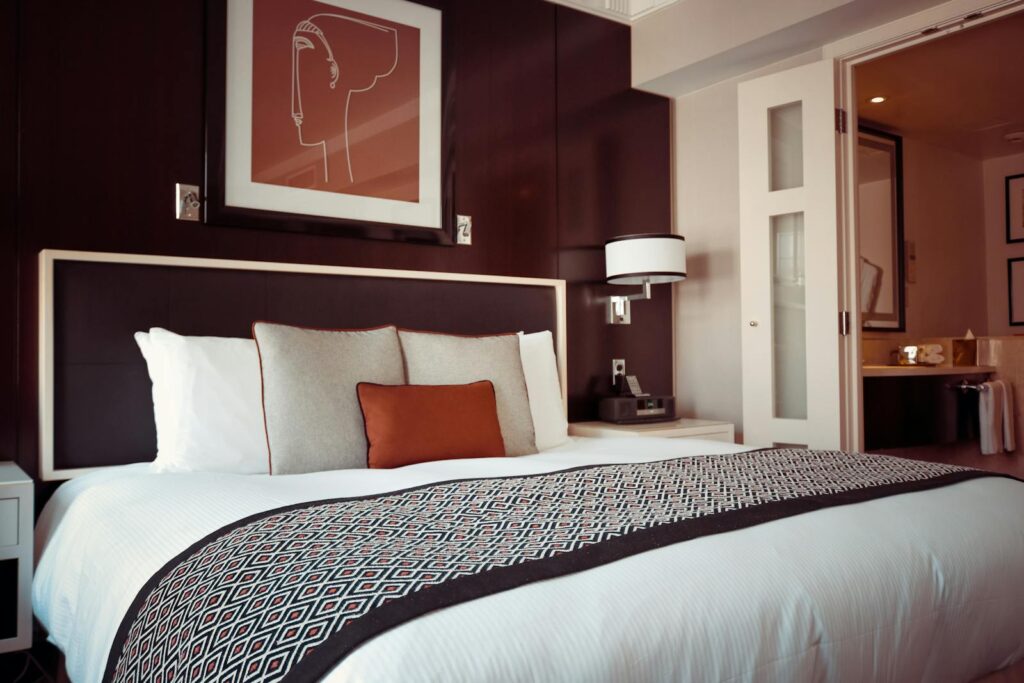Staying in a hostel while exploring the vibrant landscapes and rich culture of Portugal offers a unique and exhilarating experience. The communal living spaces foster shared stories, laughter, and the chance to connect with fellow travelers from around the globe, transforming each day into a potential adventure. However, amid this lively environment, the importance of personal space and privacy cannot be overlooked. A locker, though seemingly a modest metal box, serves as a vital sanctuary, protecting the personal belongings of guests. Yet, the breach of this sanctuary raises significant concerns about security and trust within the communal living experience.
A traveler in Portugal was trapped in trust crisis.
Imagine the unsettling feeling of finding a housekeeper, elbows deep in your personal belongings. The shock, disbelief, and a whirlwind of emotions that follow. Such was the experience of a traveler in Portugal, caught in a dilemma of privacy invasion within the shared walls of a hostel dormitory. The incident raises poignant questions about trust, privacy, and the delicate balance hostels must navigate between communal living and individual rights. The traveler, caught off guard, was left to ponder the intentions behind the housekeeper’s actions. Was it a simple misunderstanding or a breach of trust? The housekeeper, upon being caught, was thrown into a panic, unable to communicate in English, prompting the involvement of the hostel keeper. The explanation provided—that the housekeeper intended to secure a locker for the traveler’s belongings—seemed plausible, yet the action of rummaging through personal items remained unaddressed.
We provided some solutions to solve this problem.
Navigating through the discomfort of privacy invasion, especially in an environment designed to blend the excitement of exploration with the comfort of a safe haven, requires a delicate yet assertive approach. When the sanctity of our personal space is compromised, as was the unsettling experience of one traveler in a Portugal hostel, it triggers a cascade of emotions and a pressing dilemma on how to proceed. The incident, while distressing, opens up a crucial conversation on rebuilding trust and setting boundaries in shared living spaces.
The first step in addressing such a breach is to communicate openly yet respectfully. In the case of the traveler, despite the language barrier, an attempt was made to understand the housekeeper’s intentions through the hostel keeper. However, the explanation offered did not fully address the action of rummaging through personal items. In situations like these, insisting on a more thorough explanation in a calm and collected manner can often shed more light on the intentions and prevent misunderstandings.

Furthermore, it is imperative to communicate your discomfort and the importance of privacy to the hostel management. Explicitly stating your expectations regarding privacy and how the incident has affected your sense of security can help the management take corrective measures. This could include reiterating to their staff the boundaries that should not be crossed or even reconsidering their policies on room access. It’s about striking a balance between ensuring guest safety and respecting guest privacy.
Another pivotal step is to seek reassurance on the measures being taken to prevent future occurrences. This could involve asking for a change in housekeeping staff for your room or requesting information on the hostel’s policies regarding staff training and guest privacy. Knowing that the establishment acknowledges the issue and is actively working to prevent a recurrence can be a significant step in rebuilding trust.
Additionally, adopting a proactive approach to safeguarding your personal items could further mitigate such risks. While it is the responsibility of the hostel to ensure the safety of your belongings, utilizing lockers effectively, using personal locks, and not leaving valuables unattended can act as additional layers of security. In essence, it’s about finding a balance between trust in the hostel’s ability to protect your privacy and taking personal responsibility for your items.

In communal living environments, addressing privacy breaches requires proactive measures that foster trust and comfort. Open communication among residents, alongside the establishment of clear boundaries, is essential in regaining a sense of security. Seeking reassurance from management further supports this effort, while implementing personal safety measures can help mitigate risks. By advocating for our right to privacy, we not only enhance our individual travel experiences but also contribute to a culture of mutual respect and understanding within the global travel community. The joy of shared accommodations should be complemented by a commitment to creating a safe and respectful living space for all.
Related posts:
What to do if You Suspect Your Cleaner is Stealing
Do Hotel Cleaning People Sometimes Steal Items From The Rooms Of Their Guests?
Cleaning lady misreporting hours worked





